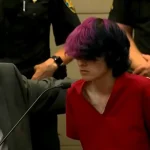With more and more concern invested in youth in Croatia (both academically and professionally), June 15-17 saw Rijeka as the host of the conference titled „Youth work in flux: an academic point of view on youth work training and education“.
The conference was organized by the Institute for Social Research in Zagreb and partners: University of Rijeka and Slovenian University of Ljubljana held as part of the Erasmus + project Supporting Evidence-based Education of Youth Workers.
„Our aim is to strengthen the epistemic community of scholars and researchers in the domain of youth work, while instigating an academic debate on existing knowledge in the domain, defining further topics that need to be explored, and investigating the possibilities of co-creating the knowledge with actors from the community“, said the official website of the Institute for Social Research in Zagreb as the page was inviting „all interested scholars, researchers, and doctoral students to submit their abstracts and contribute to shedding light on this proliferating topic“.
Among such researchers, Dr. Marko Mustapić and Dino Vukušić from the Ivo Pilar Social Research Institute stood out. The two researchers presented results of the research „Youth Activism and Sport: Legacy of Dražen Petrović and ‘heritage in the making’“. Their ethnographic research investigated „Mi smo Cibona“ (We Are Cibona) association, centered around Cibona, a famous Zagreb basketball club, and how the youth in that association respond to the famous Croatian sportsman Dražen Petrović – how they perceive, interpret, or reinterpret Petrović’s material and symbolic heritage and how they feel about basketball club today and what is the future of the association’s activism.
The research was done as part of a project called CHIEF – Cultural Heritage and Identities of European Future done in the Horizont2020 frame.
As Ivo Pilar Social Research Institute informs, CHIEF started on May 1, 2018, with a budget of 4,58 million euros. The concept was split into 10 working packages challenging both in theory and in practice, but with a goal to conduct field research on the population 14-25 years of age, to see what we can perceive about Europe’s identity in the future as these new generations develop into social and political participants.
With such conferences and various projects that aim to empower youth to stay in Croatia, it is evident that the importance of youth is finally recognized in the country. But, will that be enough to engage politicians to offer more things for the youth and stop the exodus of young Croatians from the country is yet to be revealed by future events.
When it comes to youth, learn more about what Croatia can offer to kids and families on our TC page.
For more about science in Croatia, follow TCN’s dedicated page.











